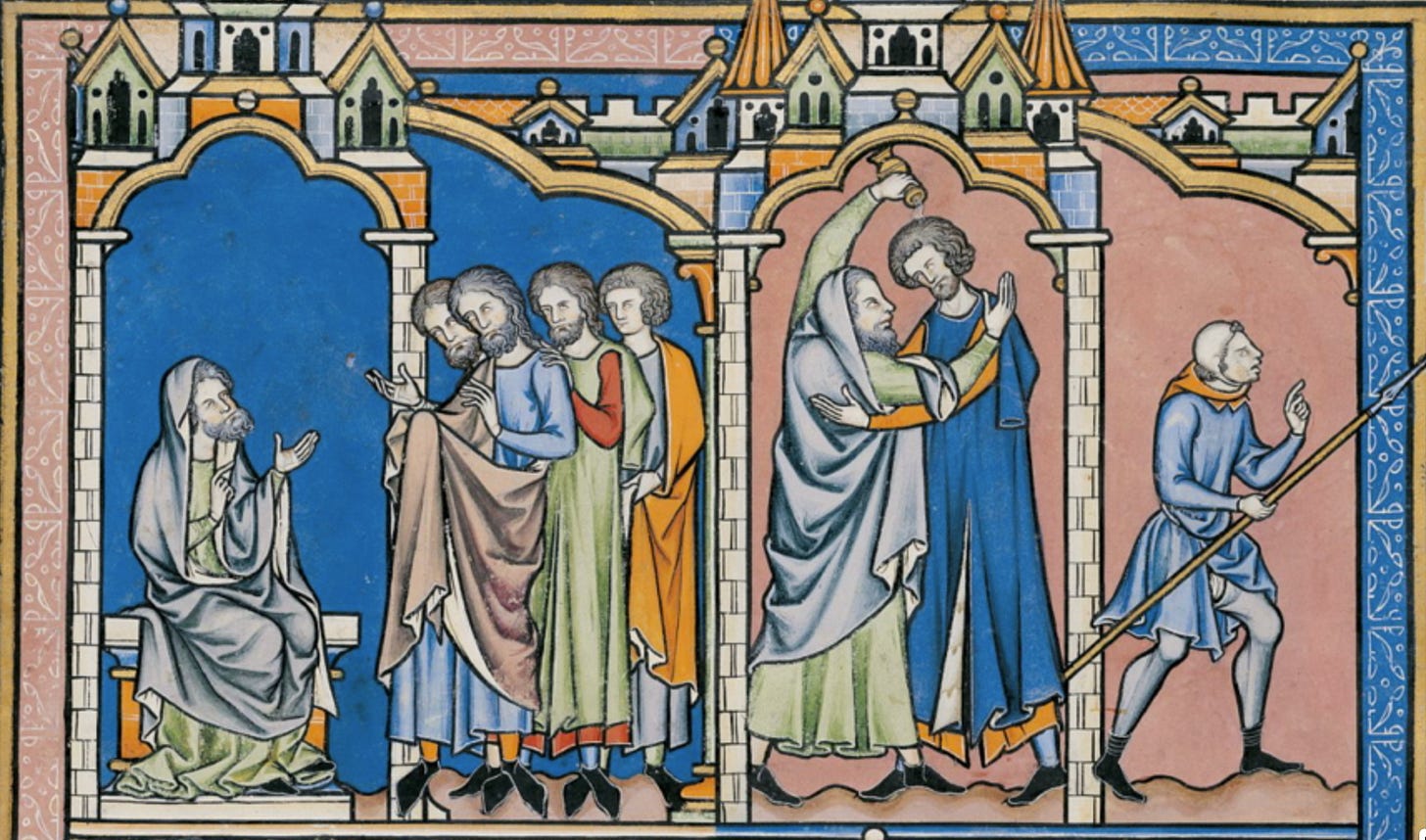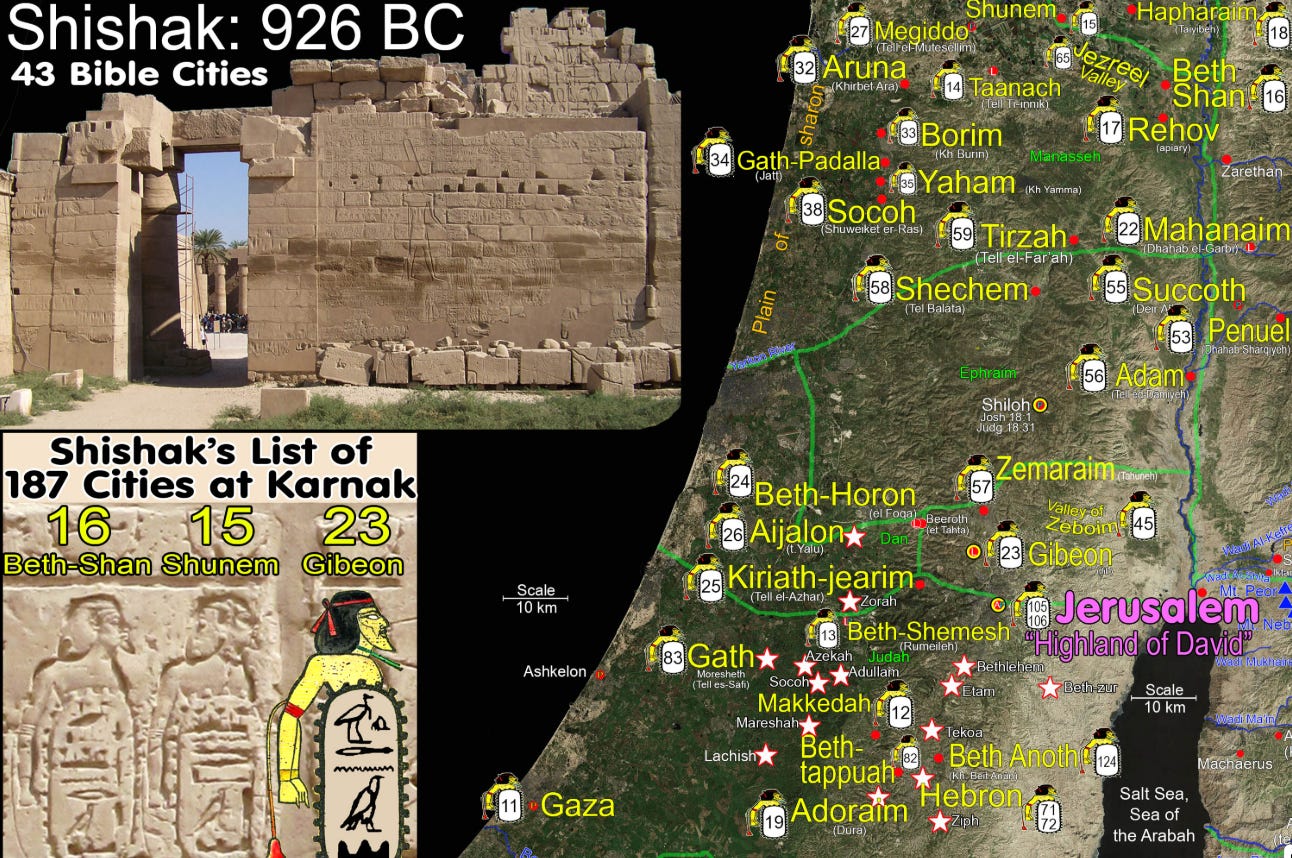READING: The Storm God of the West Semites Has Views on the Institution of Kings
“And ye shall cry out in that day because of your king which ye shall have chosen you; and the LORD will not hear you in that day”…
Judges had failed at providing either justice or prosperity or security, and the people demanded a king. The West Semitic storm-god replied with a proto–public choice memo: monarchy is society-of-domination predation and extraction, not neutral mobilization and protection. Your sons will be conscripted; your daughters drafted. Fields enclosed, output tithed, labor sent to chariots and war.
And when the bills come due, the LORD will not answer your pleadings.
A good reading for No Kings Day.
I Samuel 8 (KJV) <https://www.biblegateway.com/passage/?search=1%20samuel%208&version=KJV>: ‘And it came to pass, when Samuel was old, that he made his sons judges over Israel. Now the name of his firstborn was Joel; and the name of his second, Abiah: they were judges in Beersheba. And his sons walked not in his ways, but turned aside after lucre, and took bribes, and perverted judgment.
Then all the elders of Israel gathered themselves together, and came to Samuel unto Ramah, And said unto him, “Behold, thou art old, and thy sons walk not in thy ways: now make us a king to judge us like all the nations.”
But the thing displeased Samuel, when they said, “Give us a king to judge us”. And Samuel prayed unto the LORD.
And the LORD said unto Samuel, “Hearken unto the voice of the people in all that they say unto thee: for they have not rejected thee, but they have rejected me, that I should not reign over them. According to all the works which they have done since the day that I brought them up out of Egypt even unto this day, wherewith they have forsaken me, and served other gods, so do they also unto thee. Now therefore hearken unto their voice: howbeit yet protest solemnly unto them, and shew them the manner of the king that shall reign over them.”
And Samuel told all the words of the LORD unto the people that asked of him a king. And he said, “This will be the manner of the king that shall reign over you: He will take your sons, and appoint them for himself, for his chariots, and to be his horsemen; and some shall run before his chariots. And he will appoint him captains over thousands, and captains over fifties; and will set them to ear his ground, and to reap his harvest, and to make his instruments of war, and instruments of his chariots. And he will take your daughters to be confectionaries, and to be cooks, and to be bakers.
“And he will take your fields, and your vineyards, and your oliveyards, even the best of them, and give them to his servants. And he will take the tenth of your seed, and of your vineyards, and give to his officers, and to his servants. And he will take your menservants, and your maidservants, and your goodliest young men, and your asses, and put them to his work. He will take the tenth of your sheep: and ye shall be his servants.
“And ye shall cry out in that day because of your king which ye shall have chosen you; and the Lord will not hear you in that day.”
Nevertheless the people refused to obey the voice of Samuel; and they said, “Nay; but we will have a king over us; That we also may be like all the nations; and that our king may judge us, and go out before us, and fight our battles.”
And Samuel heard all the words of the people, and he rehearsed them in the ears of the LORD. And the LORD said to Samuel, “Hearken unto their voice, and make them a king”…
I Samuel 8 is constitutional realism. Kings may fight our battles, but they create new ones: rents to allocate, reputations to manage, coercion to normalize. Centralization that looks efficient today compounds into fragility tomorrow, especially when the king values glory over welfare, war and death over wheat and yogurt, and corrupt friends above all. The Israelites insist and get Saul—tall and plausible, the worst mix.
No Kings Day is a call to keep power dispersed and accountability thick. The storm-god’s punchline is brutal: after you choose a king, do not expect cosmic bailout from me. The LORD was right about Saul. And if you read through the surface veneer spin-doctoring overlaid upon the original stories underlying 2 Samuel, David was no better.
And then there was David’s grandson:
I King 12 <https://www.biblegateway.com/passage/?search=1%20Kings%2012&version=KJV>: ‘And Rehoboam went to Shechem: for all Israel were come to Shechem to make him king…. Jeroboam and all the congregation of Israel came, and spake unto Rehoboam, saying, “Thy father made our yoke grievous: now therefore make thou the grievous service of thy father, and his heavy yoke which he put upon us, lighter, and we will serve thee”….
King Rehoboam… consulted with the young men that were grown up with him, and which stood before him: And he said unto them, “What counsel give ye that we may answer this people, who have spoken to me, saying, ‘Make the yoke which thy father did put upon us lighter’?”
And the young men that were grown up with him spake unto him, saying, “Thus shalt thou speak unto this people that spake unto thee, saying, ‘Thy father made our yoke heavy, but make thou it lighter unto us; thus shalt thou say unto them, My little finger shall be thicker than my father’s loins. And now whereas my father did lade you with a heavy yoke, I will add to your yoke: my father hath chastised you with whips, but I will chastise you with scorpions.’”…
And the king answered the people roughly…. And spake to them after the counsel of the young men, saying, “My father made your yoke heavy, and I will add to your yoke: my father also chastised you with whips, but I will chastise you with scorpions”…
The reaction of the people gathered at Shechem to crown Rehoboam was strongly negative: Jeroboam is crowned at Shechem instead. Rehoboam retreats and decides not to contest the overall kingship but, rather, to be satisfied with ruling the Judahite lands in the south alone—“king” of only two tribes, leaving Jeroboam as king over ten. Or possibly Jeroboam was high king of all twelve. Israel was the father of Judah, after all. And Shechem, rather than Jerusalem, appears to be the center of the action.
The Khemetish (Egyptian) records we have of Pharaoh Sheshonq I Meri-Amun’s northern campaign of approximately -925, supposedly only a few years after Rehoboam’s retreat, apparently do not find Jerusalem worth mentioning—possibly because it surrendered and offered tribute rather than resisting and being subject to sack; possibly because it was not important.


